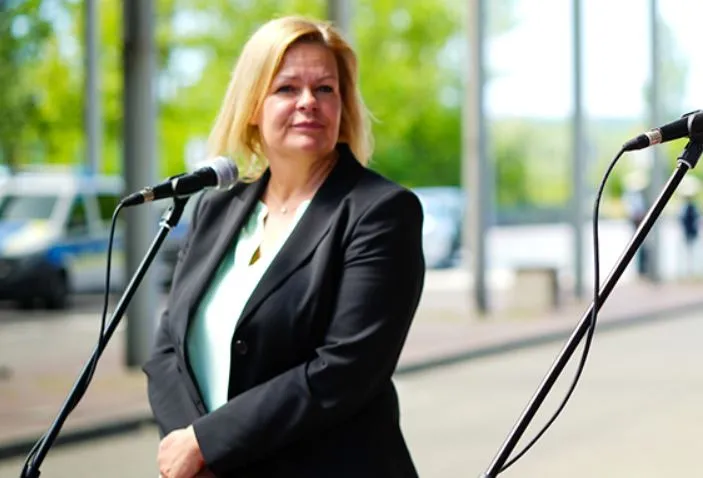Germany and France have asked for a Europe-wide pact on migration and asylum with the UK government, to capitalise on Labour’s more “constructive” attitude to EU-UK relations.
The German interior minister, Nancy Faeser, and her former French colleague, Gérald Darmanin, wrote to the EU home affairs commissioner claiming that Brexit had severely impacted “the coherence of migration policies.”
“It is evident that the lack of regulations controlling the movement of individuals between the United Kingdom and the Schengen area is a contributing factor to the dynamics of erratic movements and the risk that people utilizing this path in the North Sea and the Channel face.”
The European Commission was encouraged by Darmanin and Faeser to “rapidly” produce “a draft negotiating mandate” for asylum and migration negotiations with the United Kingdom.
The letter, which was initially cited by AFP, said, “We believe that the inauguration of a new British government, showcasing its intent to collaborate positively with the EU, is conducive to real progress on this issue.”
Germany has never before shown such a strong commitment to the EU-wide asylum agreement that France has long wanted with the UK. During the recent reorganization of the French administration, Darmanin advocated for a migration pact between the EU and the UK in 2021, but he was unable to secure the backing of other member states.
The politics of an EU-UK migration agreement may be delicate for Starmer’s administration, which refugee organizations claim has taken up the harsh language and immigration and asylum policies of the Conservatives. Prior Conservative governments rejected France’s request for British officials to handle asylum claims in the vicinity of French ports, fearing that this might incite more persons to apply for entrance into the UK.
At least 20 people have lost their lives trying to cross the Channel in two different events this month alone. More than 22,000 refugees and migrants are thought to have entered England through unauthorized Channel crossings this year, according to estimates from British officials.
The European Commission declined to comment on the letter. The European Commission has rejected efforts to negotiate an EU-UK deal in the past. A migration agreement with the UK was not a priority, according to EU home affairs commissioner Ylva Johansson, who made this announcement during the last Conservative government when tensions over the Northern Ireland protocol were at their lowest. She cited the “limited appetite” among EU member states.
A commission representative responded, “Our positions on [EU-UK] relations are indeed well known,” when asked if the commission had moved on from Johansson’s earlier remarks. The spokeswoman did not provide any other details.
Even with the backing of the largest EU members, there doesn’t seem to be much chance of an EU-UK immigration agreement anytime soon. The transfer to a new group of commissioners, who are not anticipated to start work until 1 December, is the main focus of the EU executive.
An EU-UK summit is scheduled for spring of the next year, following the rotation of leadership at the EU’s major institutions.
A representative stated that the “commission is fully working” and that a response to the letter would be sent “in due course to the appropriate authorities.”




















+ There are no comments
Add yours